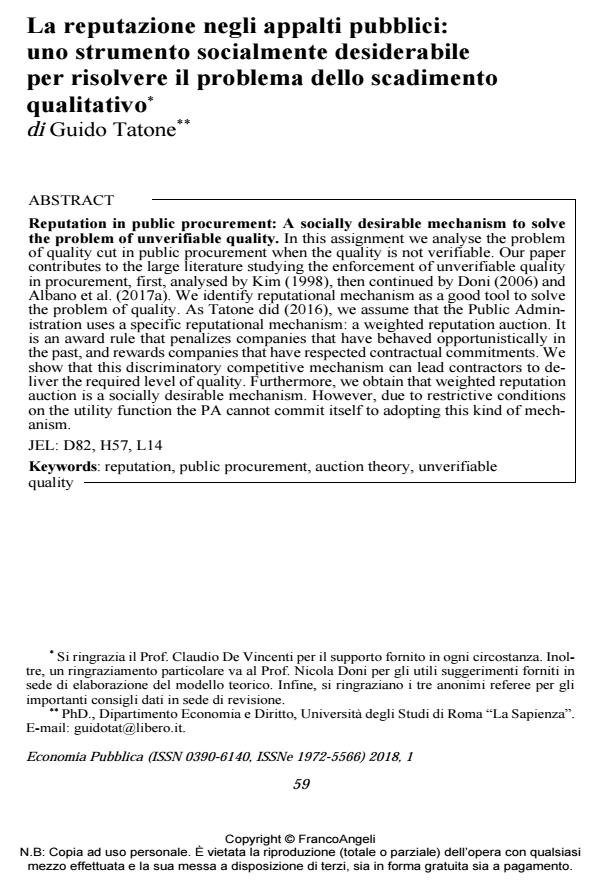Reputation in public procurement: A socially desirable mechanism to solve the problem of unverifiable quality
Journal title ECONOMIA PUBBLICA
Author/s Guido Tatone
Publishing Year 2018 Issue 2018/1
Language Italian Pages 27 P. 59-85 File size 266 KB
DOI 10.3280/EP2018-001003
DOI is like a bar code for intellectual property: to have more infomation
click here
Below, you can see the article first page
If you want to buy this article in PDF format, you can do it, following the instructions to buy download credits

FrancoAngeli is member of Publishers International Linking Association, Inc (PILA), a not-for-profit association which run the CrossRef service enabling links to and from online scholarly content.
In this assignment we analyse the problem of quality cut in public procurement when the quality is not verifiable. Our paper contributes to the large literature studying the enforcement of unverifiable quality in procurement, first, analysed by Kim (1998), then continued by Doni (2006) and Albano et al. (2017a). We identify reputational mechanism as a good tool to solve the problem of quality. As Tatone did (2016), we assume that the Public Administration uses a specific reputational mechanism: a weighted reputation auction. It is an award rule that penalizes companies that have behaved opportunistically in the past, and rewards companies that have respected contractual commitments. We show that this discriminatory competitive mechanism can lead contractors to deliver the required level of quality. Furthermore, we obtain that weighted reputation auction is a socially desirable mechanism. However, due to restrictive conditions on the utility function the PA cannot commit itself to adopting this kind of mechanism.
Keywords: Reputation, public procurement, auction theory, unverifiable quality
Jel codes: D82, H57, L14
Guido Tatone, La reputazione negli appalti pubblici: uno strumento socialmente desiderabile per risolvere il problema dello scadimento qualitativo in "ECONOMIA PUBBLICA " 1/2018, pp 59-85, DOI: 10.3280/EP2018-001003